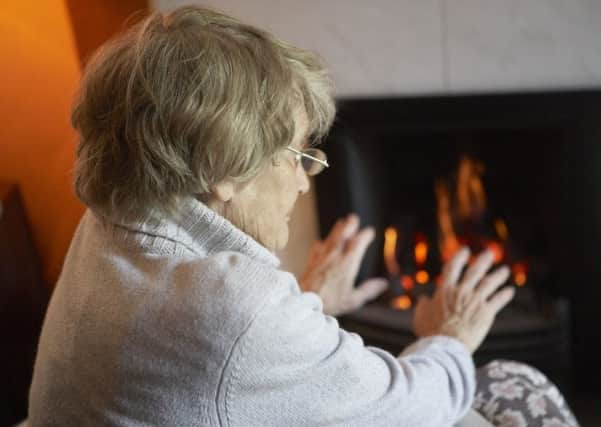Falkirk’s Integration Joint Board’s audit report makes for “difficult reading”


The independent audit of Falkirk’s Integration Joint Board says progress is not being made in ‘critical areas’ and board members need to “demonstrate the leadership needed to deliver the necessary change”.
However, IJB convener Fiona Collie believes that they have already taken on board the criticism and she is confident that real change is about to happen.
Advertisement
Hide AdAdvertisement
Hide AdShe said: “Progress is now underway and we anticipate the transfer of NHS functions in the new year.
“An improvement plan was submitted to the recent IJB meeting, which will address the issues raised. The audit committee will oversee the delivery of the plan.”
Councillor Collie is confident that the real changes will begin to start when a key new member of staff is introduced.
The Falkirk area is being split into three localities and managers Martin Thom and Lorraine Paterson have been in post for several months.
Advertisement
Hide AdAdvertisement
Hide Ad“A third locality manager has been recruited and will take up post in the new year,” said Ms Collie. “This will enable the HSCP to establish all three locality teams and make progress with integration and service transformation.
“The new year will see the integration of community health and social care in Falkirk which will open up new opportunities to improve health and wellbeing alongside our communities.”
The auditors also point out that the board faces a massive funding gap to deliver its services. While the services managed by social work came in under budget, during 2018/19, an extra £2.6 million was required from NHS Forth Valley to meet overspends. In fact, additional funding has been required from NHS Forth Valley for the third consecutive year of the partnership.
In a demand-led service, budgets are difficult to control and one of the main reasons for this is a rise in the cost of prescriptions. In total, over the last three years the prescribing spend has exceeded budget by almost £5 million, partly as a result of the growth in new medicines.
Advertisement
Hide AdAdvertisement
Hide AdThe report was also critical of the fact that the board had not properly integrated, meaning health workers remained employed by the NHS while those working in social care remained with the council and the budgets remained separate.
Board members include Falkirk Council’s leader and chief executive and NHS Forth Valley’s chairman and chief executive along with senior health service and social work managers.
The audit urged the IJB to ensure “that the timeliness of financial reporting from partners supports greater transparency on the use and impact of reserves”.
The auditors, EY, were also critical of the lack of a medium term financial plan. The report found: “Only 61 per cent (£2.6m) of planned savings were delivered in 2018/19. A funding gap of £5.2m has been identified for 2019/20 but it is unclear how NHS Forth Valley will deliver their share of savings, totalling £3.47m (68.7 per cent).”
Advertisement
Hide AdAdvertisement
Hide AdWhile criticisms were raised by auditors they stressed that they were not critical of the financial management, stating there were no adjusted or unadjusted audit differences arising from the audit and no material issues or unusual transactions were found. The audit also recognised the work that has been done in adult social care to transform services, saying they had been “effective in delivering improvements in a short period of time”.
The challenge now for the IJB and the Health and Social Care partnership that it is responsible for, is to change the way services are delivered to make savings without compromising on care.
But it’s a big task – not only are budgets shrinking, the number of elderly people in the district is continuing to rise.
One of their biggest challenges will be to stop the number of people being put into care homes before they need to be.
Advertisement
Hide AdAdvertisement
Hide AdThe health and social care partnership’s chief officer Patricia Cassidy says that means a change of culture in Falkirk – where figures show that people are put into care homes earlier than many other local authority areas.
Falkirk also has one of the worst delayed discharge rates in the country – and as people lose capacity at an alarming rate when they are in hospital, it could be this is adding to the number of people in care homes.
The IJB has pledged improve Falkirk’s services for reablement and rehabilitation – introducing a ‘home first’ system that takes people out of hospital as soon as possible.
It has also pledged to review of the community hospitals in Falkirk and Bo’ness and look at services to help people live longer in the community, including ways of treating elderly people who fall to avoid them having to go to hospital at all.